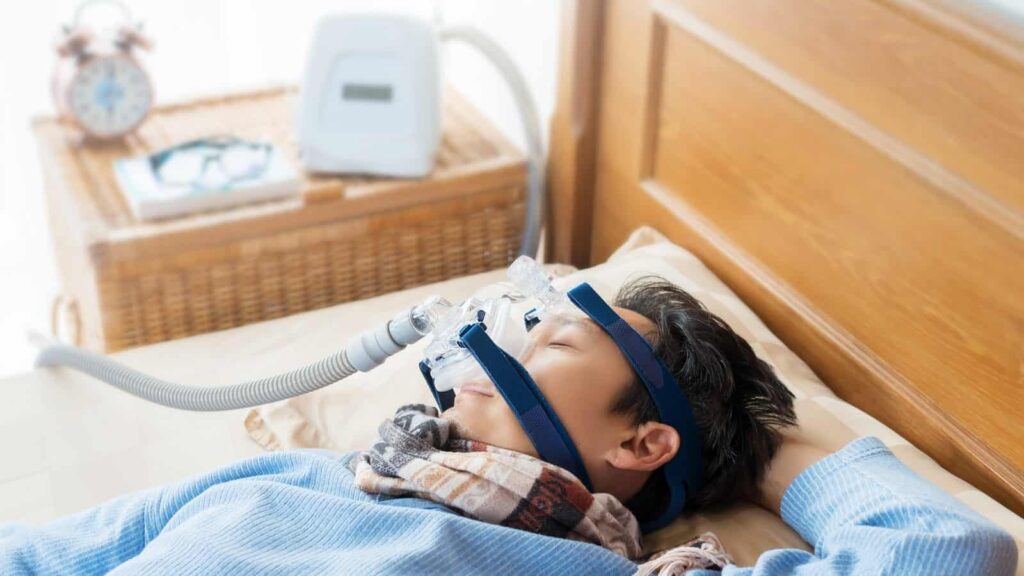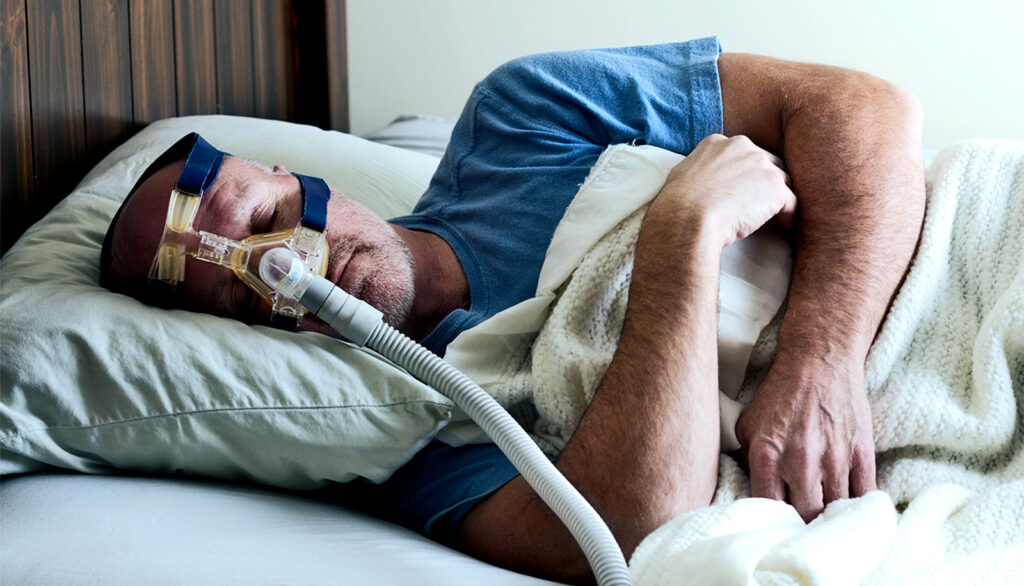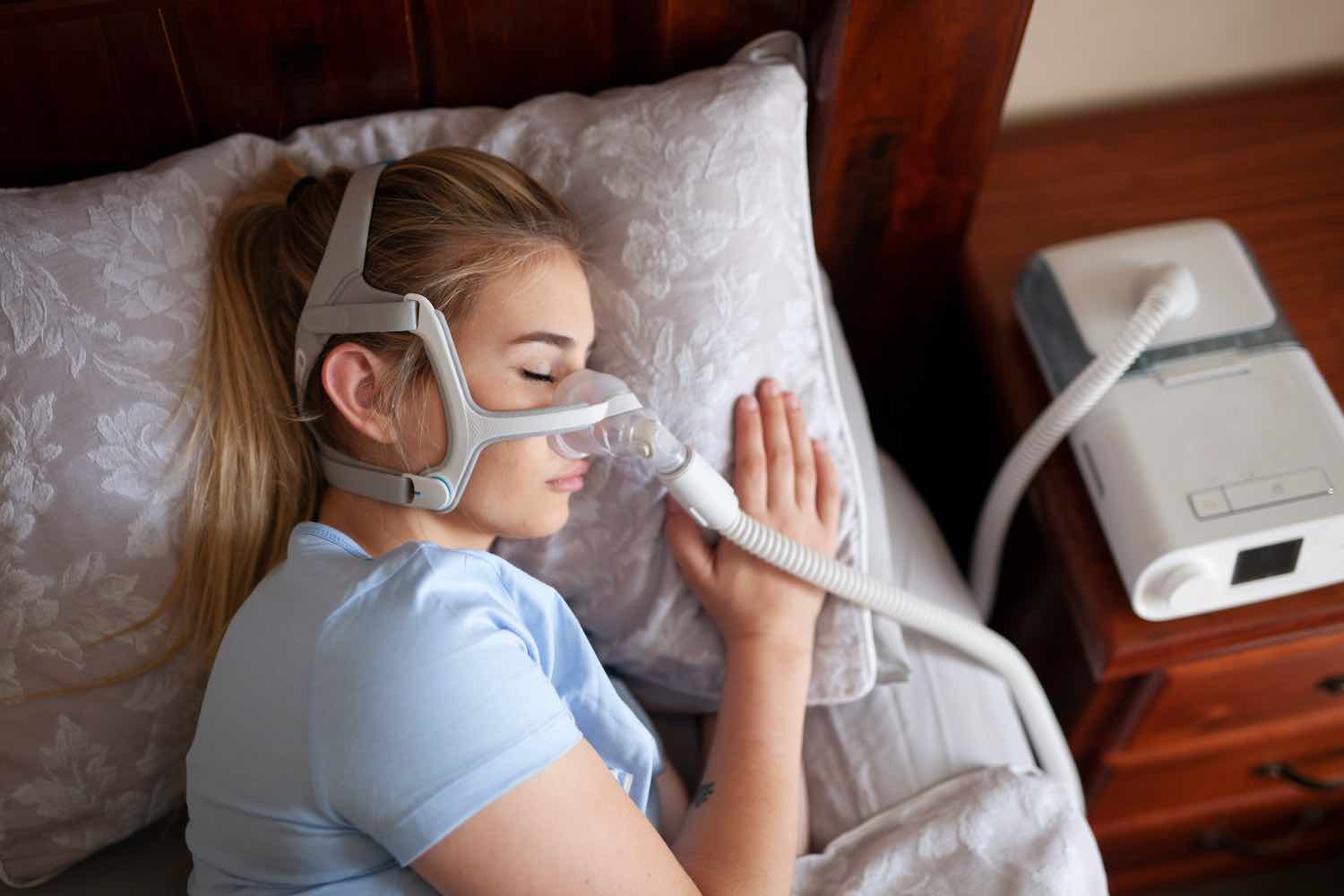To become acclimated to CPAP, some effort may be required. If you take your CPAP machine off periodically throughout the night, you aren’t receiving the proper treatment. Your insurance won’t start paying for CPAP if you’ve just recently begun using it. However, how can you stop yourself from removing it when you’re sleeping? Look at the alternatives for help below to see how easy it is.
Why Does It Matter If I Wear My CPAP Device Throughout the Night?
Get the right one
You have a CPAP because it is necessary for the effective treatment of sleep apnea. Best cpap machines work by providing your body with the oxygen it needs for a restful night’s sleep on both a physical and emotional level. If you take off your mask while you’re sleeping, you may not be receiving enough oxygen, which might be dangerous for your health. In addition, you can feel worn out when you wake up. You need to wear your mask for around 6 hours to get a complete night’s rest.

Compliance
If you want your insurance provider to cover the cost of your CPAP supplies, you must maintain compliance. Compliance refers to how long you use your equipment at night and if it has an impact on you. Compliance is assured through data monitoring while you use your device.
Medicare must adhere to some of the strictest coverage requirements. A three-month CPAP trial could be covered by Medicare. Medicare will continue to cover CPAP therapy provided your doctor records in your medical record that you meet particular standards for using the equipment and that the treatment is helping you.
You must start recording your CPAP compliance for Medicare 31 days after you initially start using your CPAP equipment but before the 90th day. As a result, it is seen from day 32 to day 89 after ingestion. To maintain compliance, you must use your device for a minimum of four hours per night and on 70% of the nights.
The next step is an evaluation by your doctor to establish whether or not your CPAP has lessened your symptoms. If you are found to be noncompliant, Medicare may not pay for your supplies. However, you can try again by going through the new patient compliance processes. For various private insurance companies, there are various compliance standards.
Inspect the CPAP pressure.
Your CPAP machine may sometimes slide while you sleep if the pressure settings are off. For instance, the pressure might be set too high or too low.
Leaks from high-pressure CPAP machines may dry up your mouth, nose, and eyes while also irritating them. It could also make it challenging to go to sleep or stay asleep. If it’s too low, on the other hand, you may not be able to get enough oxygen when you sleep.
The Solutions: You may lessen CPAP machine leaks by switching to a full-face mask, which helps disperse oxygen over a broader area.
Speak with a specialist or your doctor, who can give you advice on whether to change your pressure settings based on data from your CPAP machine on compliance. Never make your own changes to the settings.
Make sure your CPAP machine fits properly.
If your CPAP machine is adjusted incorrectly, it might be overly big, which could make it easy to take off, or it could be painfully tight, pressing painfully on your face.
The Remedy:
- Adjust the fit of your CPAP equipment. Although it should be snug, your CPAP machine shouldn’t be too tight such that it pinches or burns your skin.
- If you need help deciding on the best CPAP machine for your unique needs, get in contact with us.
- Consider switching to a different CPAP machine.

Skin irritation from CPAP must stop.
Do you wake up with red pressure marks, blisters, or acne on your face? If your CPAP machine is causing you discomfort, it might be because it is overly tight, you are allergic to silicone, you have oily skin, or the mask is dirty. If your mask is dirty, it might expose your skin to allergies, microorganisms, and dust. Furthermore, if it’s old, it can contain material fractures that are perfect for germ growth.
- Utilize a CPAP machine liner or a fabric CPAP machine to provide a gentle barrier between your skin and the silicone.
- Use an aloe vera gel mask to lessen skin sensitivity.
- Washing your face before night can reduce oil production.
- To keep your CPAP machine clean, use the Lumin CPAP cleaner often.
- Make sure your mask is the right size.
- Change your mask often in line with your replenishment strategy.
Prevent Nasal Congestion, Dryness, and Irritation
Do you wake up with dry or itchy noses? Do you often suffer from allergies or colds that make it difficult to breathe through your nose? Being stuffy might make it harder to fall asleep, especially if you don’t mouth breathe.
The Solutions:
- When using a CPAP, use a humidifier to provide heat and moisture to the air passing through the machine. This will prevent dryness and relieve congestion.
- Use a complete face mask to disperse the air across a wider area.
- Use a CPAP cuddling hose to cover your tube to warm the air passing through it.
Never having Claustrophobia
You may decide to take your CPAP machine off while you sleep due to a feeling of claustrophobia. You can experience strapping throughout the night or a tight mask. You could inadvertently grant yourself permission to relax throughout the night.
The Solutions:
- Use your CPAP machine before night and during naps to become used to it.
- Wear your mask when indulging in stress-relieving activities like reading.
- Test out new CPAP machine models with easily removed magnetic clips.
- Switch to a nasal mask or another mask that has less skin contact.
Final thoughts
To become acclimated to CPAP, some effort may be required. If you take your CPAP machine off periodically throughout the night, you aren’t receiving the proper treatment. Your insurance won’t start paying for CPAP if you’ve just recently begun using it.
Other articles:
Is your CPAP machine giving you issues?
Choosing from these type of CPAP masks
Choosing CPAP masks based on your sleeping position
